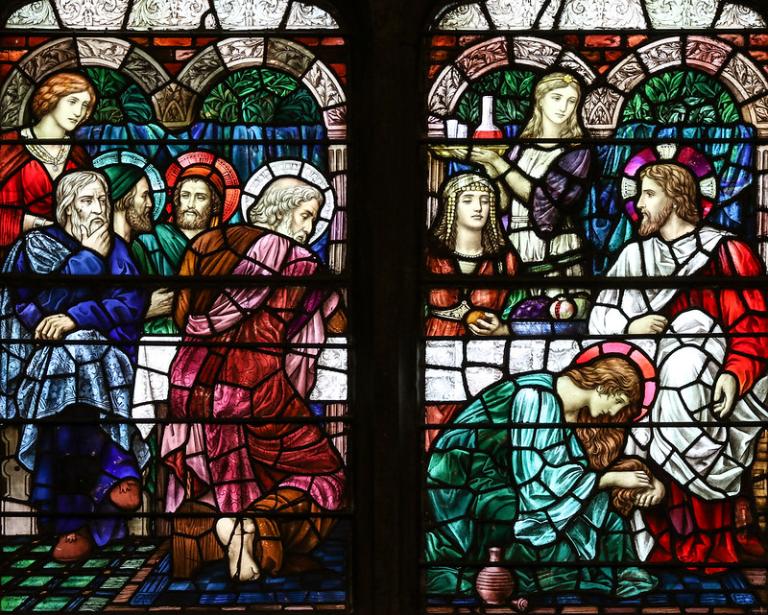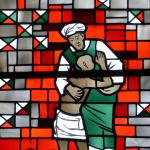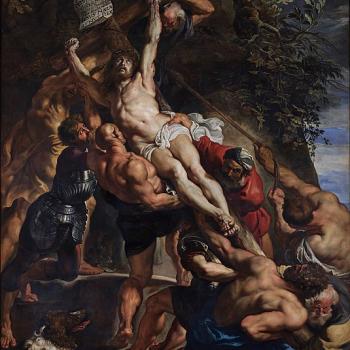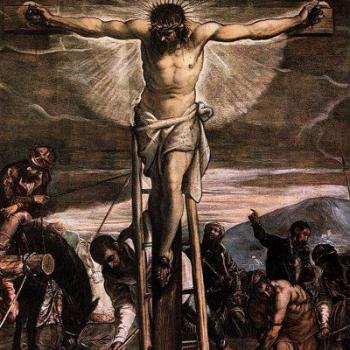The Bible is inexhaustible. No matter how many times you read it, study it, and hear it preached, you can always learn something new.
St. John identifies the woman as Mary of Bethany, the sister of Martha and Lazarus. The first time the gospel writer mentions her, in the previous chapter, he says that this is the Mary “who anointed the Lord with ointment and wiped his feet with her hair” (John 11:2), a flash-forward to what will happen later.
But we have also been introduced to her in the Gospel of Luke, who tells about how her sister Martha was “distracted with much serving,” while Mary “sat at the Lord’s feet and listened to his teaching” (Luke 7:39-40). Jesus commends her, telling her busy sister,“Martha, Martha, you are anxious and troubled about many things, but one thing is necessary. Mary has chosen the good portion, which will not be taken away from her” (Luke 7:41-42). So Mary was an unusually pious woman, with a great devotion to Jesus.
Much later, St. John records that the sisters send a message to Jesus saying that their brother Lazarus is gravely ill. Strangely, though, Jesus delays. By the time he gets to Bethany, Lazarus has already died and has been buried for four days. When Jesus finally gets there, the sisters display their resentment. “When Martha heard that Jesus was coming, she went and met him, but Mary remained seated in the house” (11:20). Practical Martha comes out to meet Jesus, but devout Mary refuses to! Martha herself rebukes Jesus for His delay: ““Lord, if you had been here, my brother would not have died” (11:21).
To be sure, she is also affirming her faith in Jesus, knowing His power, and, as Jesus interacts with her, makes a clear confession: “I believe that you are the Christ, the Son of God, who is coming into the world.” Pastor Fraser made the point that waiting on God is part of faith, that we too may sometimes be frustrated at God’s delays, but that we need not lose heart.
At any rate, Jesus calls for Mary. She comes out to Him, where He still is with Martha. She responds with the same words of rebuke as her sister: ““Lord, if you had been here, my brother would not have died” (11:32).
Now Jesus weeps with her (11:33). And He raises her brother’s rotting body from the grave, restoring Lazarus to life, restoring him to his sisters. What Jesus did for them was overwhelming, far beyond anything they could have imagined or hoped for.
The next time we see Mary is the day before the Triumphal Entry and the week that Jesus goes to His death. His Bethany friends throw Him and His disciples a dinner. Martha is serving, as usual. Lazarus, the man who came back from death, is at the table, tying this episode to the account of his death and raising.
As for Mary, she had been sullen and her last recorded words to Jesus were to rebuke Him. But now, in light of what He has done for her and her family, she responds with a gesture of utter extravagance and overwhelming emotion:
Mary therefore took a pound of expensive ointment made from pure nard, and anointed the feet of Jesus and wiped his feet with her hair. The house was filled with the fragrance of the perfume. But Judas Iscariot, one of his disciples (he who was about to betray him), said, “Why was this ointment not sold for three hundred denarii and given to the poor?” He said this, not because he cared about the poor, but because he was a thief, and having charge of the moneybag he used to help himself to what was put into it. Jesus said, “Leave her alone, so that she may keep it for the day of my burial. For the poor you always have with you, but you do not always have me.” (John 12:3-8)
A denarius was a day’s wages. The ointment Mary lavished on Jesus was worth 300 denarii, a year’s income! (This was evidently a wealthy family.) But this was Mary’s outpouring of devotion. Again, Mary is insanely impractical. But she “has chosen the good portion, which will not be taken away from her.”
And in this anointing of the Anointed One, which is the meaning of “Christ,” she prophesies His death in the week ahead and, as the other faithful women will do, begins His burial.
Illustration: Mary of Bethany Anoints Jesus’s Feet, Stained glass window from Grace Episcopal Church in NYC by Lawrence O.P., via Flickr, Creative Commons License 2.0.


















